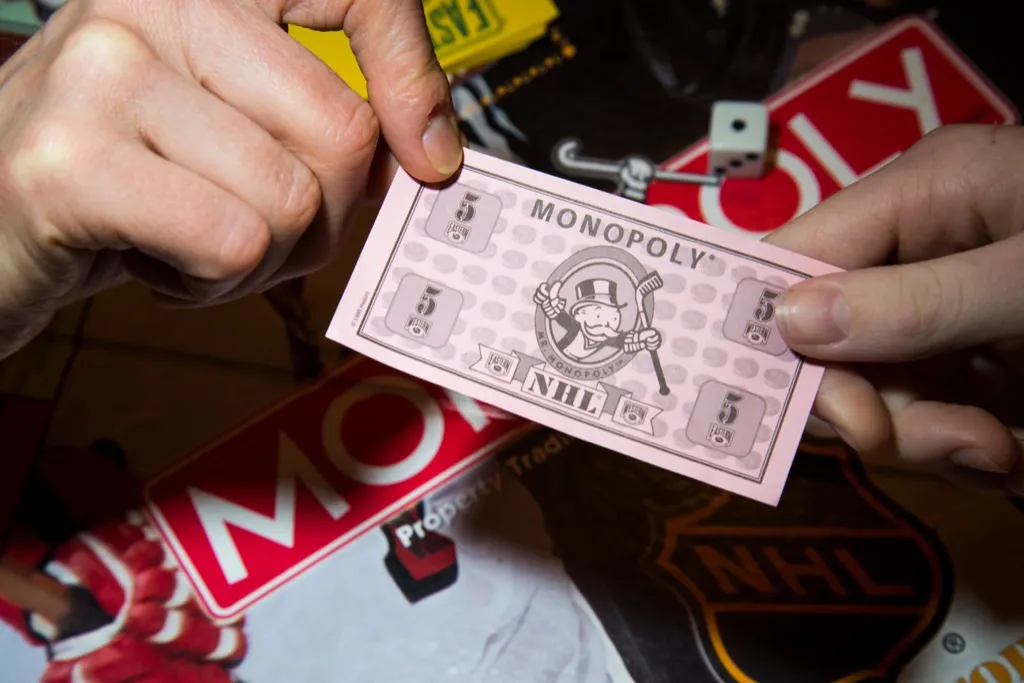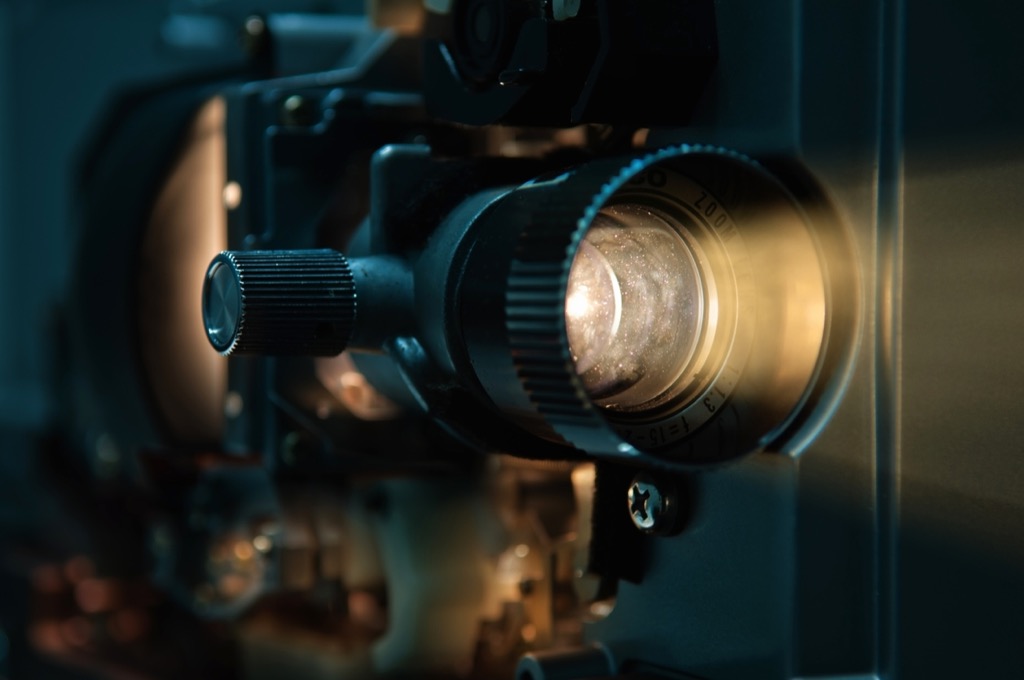21 Billion-Dollar Ideas That Were Rip-Offs
You know what's cooler than a million dollars? Someone else's idea.

This past decade alone, numerous multibillion-dollar companies, like Facebook and Uber, have wound up embroiled in IP scandal after IP scandal after IP scandal, constantly testing the power of original ideas—and whether or not any inventor truly has them in the first place. Though, along with a little help from the Internet (and decades of research), we're beginning to discover that the most famous inventors of all-time, some credited with inventing major technological advancements like lightbulbs and radio signals, merely stole their ideas from other people—and good luck finding these forgotten inventors in your history books.
From Galileo's universe-changing telescope to Epic Game's epic game, Fortnite, these are the billion-dollar ideas that were definitely not original. And for more great historical blunders, check out The 40 Most Enduring Myths in American History.
1
Monopoly

Similar to many other famous inventions or discoveries throughout the years (nuclear fission, for example), the famous board game and great American pastime, Monopoly, as reported by The Guardian, was actually invented by a woman. In fact, it was invented by a bold, progressive woman, Elizabeth Magie, in 1903.
Back then, it was called The Landlord's Game, "to demonstrate the tragic effects of land-grabbing." Even though her story is widely known, many still cite Charles Darrow as the rightful inventor—even though he merely just stamped his name on something that did not belong to him. And for more on the board games we love to hate, check out these 30 Hilariously Bad Board Games.
2
The sewing machine

When you think of the sewing machine, the first company that comes to mind is probably the Singer Corporation, mostly because they are still, to this day, such a powerful force in the industry. Though, according to Cambridge History, despite this firm grip on the sewing machine industry, Isaac Singer and the Singer Corporation stole the idea for this machine from inventor Elias Howe, who eventually sued the company for the right to receive royalties. Howe won.
3
The television

Though your textbooks may have you believe that the first television was created by Vladimir Zworykin for electronics company RCA, according to Technology Review, it was actually invented by Philo Taylor Farnsworth, an American inventor with 165 patents to his name.
As it turns out, Farnsworth invented the television in 1927, at the age of 21, and three years later, Zworykin visited his lab to view this invention (which he had also been trying to create), and ended up lifting his ideas. After a decade-long court battle, RCA eventually lost both the initial court case and the appeal, meaning that Farnsworth would have to receive royalties for the invention, though he has yet to receive the recognition. And for more amazing inventions, check out these 30 Products So Dumb They Might Be Brilliant.
4
The telephone

In the late 1800s, a race to craft the first successful telephone was underway—and the two main contenders in this race were Alexander Graham Bell and Elisha Gray. If you've never heard of inventor Elisha Gray, that's probably because you were taught in school that Alexander Graham Bell was the genius who invented the device that could transmit intelligible sounds from one place to another.
As it happens, on February 14, 1876, both men submitted their patents—though it was discovered that Bell actually bribed the patent office to find out what Gray's invention actually looked like. Because of this deceit, Elisha Gray is often found to be the more credible inventor of the telephone, though he never received the credit.
5
Intermittent windshield wipers

In this case of stolen ideas, it was actually three large companies who committed the thievery. In 1964, as reported in the New Yorker, it was Robert Kearns who invented the intermittent windshield wipers to combat the one speed that the blades previously functioned at, describing the blades as moving at speeds that were too quick for the human eye.
Unfortunately for Kearns, after taking his new invention to the big three automobile companies General Motors, Ford, and Chrysler, they immediately dismissed his invention, though suspiciously began selling cars with very similarly designed windshield wipers. After an outraged Kearns learned of this, he sued Chrysler and Ford for stealing his invention, earning $30 million and the recognition he deserved. And for more inventions that changed our lives, check out these 23 Clothing Items That Changed Our Culture.
6
Lasers

As a graduate student at Columbia University in 1957, Gordon Gould invented what he named the Laser, or Light Amplification by Stimulated Emission of Radiation. And, though he had just created something important that he wanted to showcase, Gould figured that he would need to perfect his design of the laser before filing for a patent.
Unfortunately for Gould, the Washington Post reports this misstep allowed for two of his colleagues to steal his idea and patent it themselves two years later, in 1959. Eventually, after 30 years of court battles, Gould was able to rightfully put his name on this invention and claim several million dollars in royalties.
7
The steamboat

When the steamboat was invented in the late 18th-century, it was to increase the speed of water transportation, which had long been an issue in the United States. In 1787, according to The Inventors, an organization linked to The New York Times, ex-soldier John Fitch became the first person to launch a steam-powered boat into the Delaware River, helped by oars on each side. Since the patent system was not as sophisticated at that time, the patent Fitch received in 1791 for his invention did not give him a monopoly, leaving his creation free to use by a more successful inventor, Robert Fulton, who was able to create a better, more successful version of the boat. The legal struggles of these steamboat builders were partially the reason why the government passed the Patent Act of 1790, requiring more strict guidelines for patents.
8
Radio

In the last decade of the 19th-century, inventor Nikola Tesla found that he could use his electronically charged Tesla coils to broadcast messages over long distances, and his patent for this design was accepted in 1900. During this time, a young inventor named Marconi was also attempting to invent something similar using many of Tesla's patents, and when he eventually found success 1904 with creating a radio transmission, he was recognized for creating the radio, and Tesla was furious at this false development. And, according to a report from PBS, he never had the financial means to prosecute Marconi—though the invention was eventually credited to him after his death in 1943.
9
Smartphones

As it turns out, as reported by The Telegraph, our popular handheld devices were possibly created by a man in Florida. As of right now, this man, Thomas S. Ross, is suing one tech giant for $10 billion, claiming that he filed the patent for an "electronic reading device" in 1992.
10
Jack Daniel's

For years, according to the New York Times, this Tennessee whiskey distillery claimed that while slaves had helped form the recipe, they hadn't crafted the exact process that made Jack Daniel's whiskey so delectable—that distinction belonged to founder Jack Daniel.
But, in a drastic move in 2016, the company that owns the Jack Daniel's Distillery, Brown-Foreman, made headlines when they decided to finally give the credit where it's been due for the past century-and-a-half—to the slave that truly created the whiskey, Nearest Green.
11
Facebook

When 19-year-old Mark Zuckerberg launched Facebook as a sophomore at Harvard in 2004, as reported by Business Insider, he allegedly did so without the consent of three of his classmates who helped him develop the idea, Cameron and Tyler Winklevoss, and Divya Narendra. Eventually, in 2007, the three students received a settlement from Facebook to ease tensions among the former classmates. (Throughout the entire court process, though, no one ever admitted any wrongdoing, of any sort.)
12
Oreos

Oreos are so ingrained in our culture that we often forget that the brand behind the name, Nabisco, according to CNN, didn't actually invent the sandwich cookie—they just did a great job at marketing the delicious product. The original sandwich cookie was actually created by Sunshine Biscuits and called "Hydrox" cookies. They were incredibly successful for four years, until 1912, when Oreo production began. In fact, Oreos became so popular that Sunshine Biscuits were eventually sold and the products were distributed by other brands. Now, any court case alleging this thievery would only get scoffs.
13
Skechers' "BOBS"

In perhaps the most obvious case of expensive stolen ideas, the shoe brand Skechers noticed how profitable the TOMS brand had become, and sought to (literally) copy every detail of their marketing strategy, says Fast Company. In this marketing strategy, TOMS CEO, Blake Mycoskie, sought to give a pair of shoes to one person in need for every pair of shoes sold. While it's a risky strategy, it is one that pulls on the heartstrings of consumers looking to do good (and while looking good doing it). However, unlike other inventors who have had their ideas stolen, Mycoskie had actually hoped that his philanthropic business venture would be copied to help those in need—good thing Skechers was around to do just that with BOBS.
14
Pixar's Finding Nemo

Though it technically didn't hit a billion dollars—it grossed just short: $940 million—Pixar's legendary Finding Nemo still managed to become a cultural icon around the world. And, though French author Franck Le Calvez may have been attempting to outwit Disney with his million-dollar lawsuit, the claims that his ideas were stolen and used in the popular film, Finding Nemo, seem very believable.
According to Le Calvez, the illustrations and storyline he created in his children's book about Pierrot the clownfish, published in 2002, according to the BBC, are eerily similar to those in the film, which premiered in 2003. Unfortunately for Le Calvez, he was no match for Disney, who claimed that they had already come out with illustrations for the film in 2000—and promptly sued Le Calvez instead, for damages to Disney.
15
Post-it Notes

The makers of the paper version of the Little Engine That Could, the Post-it Note, are being sued by inventor Alan Amron who claims that he was the first to invent the product in 1973, four years before the company started producing them, says Industry Week. The company behind the Post-it Note, 3M, is still challenging Amron's accusation, despite a previous trial in which the inventor received money for his part in the paper product's popularity.
16
Legos

Beginning in the 1940s, the company Kiddicraft began manufacturing "Kiddicraft Self-Locking Building Bricks," a toy that looks eerily similar to the toy LEGO. This toy, originally patented by Hilary Harry Fisher Page, was eventually copied by Kirk Kristiansen, the founder of LEGO, who was unaware that Page had a patent for this type of toy. Though, lucky for him, Page died before he realized that Kristiansen had stolen his idea and claimed it as his own. Eventually, though, after LEGO acquired Kiddicraft, Tyco, the brand that distributes LEGOS, attempted to sue Kiddicraft and lost, allowing the brand to continue selling the product, says Wrike.
17
The lightbulb

The story of the lightbulb displays the often complicated process of invention—and how, more often than not, the credit isn't given to those who deserve it the most. While Thomas Edison is indeed a brilliant inventor, he did not invent the lightbulb, says this article by U.S. News. Rather, along with a few other inventors you've likely never heard of, Heinrich Goebel was likely the one who invented the lightbulb, having tried to sell the device to Edison in 1854, though the famed inventor saw no use for it then. Then, shortly after Goebel's death, he purchased the patent from his widow at a ridiculously low price and credited himself with coming up with the invention.
18
Flight

Unfortunately, the brothers that became the pride and joy of Dayton, Ohio, were actually not the first in flight—by a long shot. On December 17, 1903, Orville and Wilbur Wright successfully flew the first manned aircraft in Kill Devil Hills, North Carolina. Though, now according to new evidence presented by Business Insider, it looks like this first in flight distinction actually belongs to German immigrant and Connecticut resident Gustave Whitehead, who, according to Business Insider, flew for one-and-a-half miles at a height of 50 feet on August 14, 1901—two years before the Wright brothers ever did.
19
Graphical User Interface

In 1988, according to Cult of Mac, Apple sued Microsoft and Hewlett-Packard for alleging stealing their idea to use visual graphical user interface elements that were very similar to their own. Though the court eventually ruled that "Apple cannot get patent-like protection for the idea of a graphical user interface, or the idea of a desktop metaphor [under copyright law]…," it is widely understood that the two companies did in fact copy Apple's idea after seeing how well it worked.
20
The telescope

Similar to other inventions on the list, the real inventor of the telescope is often never talked about. In this case, the true inventor of this stargazing device is actually Dutchman Hans Lippershey, who created his first prototype in 1608, but was denied a patent for reasons that still remain unknown. And, unfortunately for Lippershey, the Italian astronomer Galileo Galilee, according to Cracked, after stumbling upon the Dutchman's creation, crafted his telescope in a similar fashion and somehow still receives credit for inventing this groundbreaking product—despite never receiving a patent for it.
21
The moving picture

For our last deep dive into the most expensive cases of stolen ideas, we're again looking into the dark past of inventor Thomas Edison. Yet again, according to Business Careers Guide, Edison claimed all of the credit for inventing a product that he stole from someone else—in this case, the invention of the video projector by Francis Jenkins. After Jenkins parted ways with his invention partner, Thomas Armat, he lost all hope for recognition as Armat soon began working with Edison, who basically stole Jenkins monumental invention. And for more of the greatest lies throughout history, check out these 33 Common Myths We're All Obsessed with.
To discover more amazing secrets about living your best life, click here to sign up for our FREE daily newsletter!





















